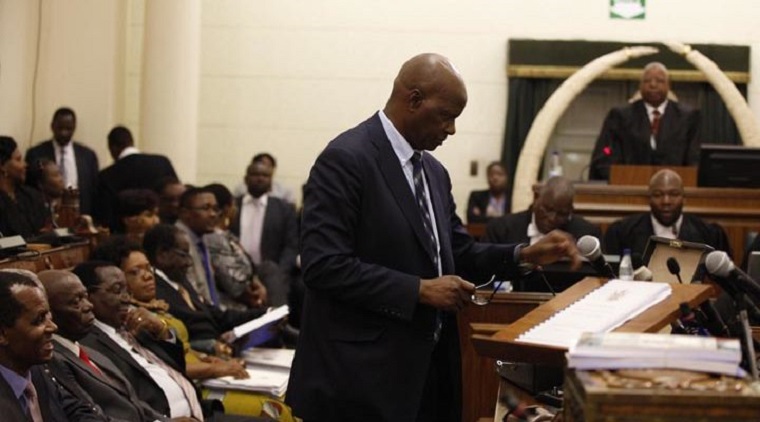Finance Minister Patrick Chinamasa yesterday raised the budget allocation for health by nearly a third to $520 million from $408 million and the Parliament’s allocation to $80 million from $57 million after Members of Parliament refused to pass allotments they deemed to be ‘too low.’
The MPs demanded that Chinamasa raise the health budget to fulfill the Abuja Declaration pledge, to which Zimbabwe is signatory. In April 2001, African Union member states pledged to allocate at least 15 percent of their annual budget to the health sector.
Zimbabwe’s hospital infrastructure, said MPs, is dilapidated while they were dealing with a chronic shortage of drug.
“I will only compromise to increase it to $520 million. Let us not dish out money which is not there. If the revenue is there I will get the Health budget to even $2 billion. Let us work in a realistic manner. What is going to happen with the compromise I have done of increasing the Health Ministry budget to $520 million means that something is going to lose out,” said Chinamasa.
The MPs also refused to pass the Parliament’s budget allocation of $57 million and demanded $100 million.
Chinamasa refused and negotiated the figure down to $80 million.
“I am sure that MPs understand that there is no money, but given their concerns I can only raise the Parliament budget to $80 million,” he said.
He also said every MP will have a free car, adding that after three years of getting their vehicles, he will give them duty free certificates to import cars, especially considering those MPs from rural constituencies whose vehicles depreciate quickly.
Previously MPs got vehicles on a loan scheme.
The Finance Minister also ruled out levying new taxes on electronic payments and will instead, remove charges on transactions below $10.
Bulawayo South MP Eddie Cross on Tuesday suggested the increase while member of the committee on health suggested a sin tax on sugary foodstuffs and drinks to increase funds for the sector.
Chinamasa told the National Assembly during the debate on a motion on the Finance Bill of 2018 that he will bring amendments to the Banking Act to remove charges for all banking and swipe transactions that are below $10.
“I do not agree to put a tax to electronic transactions because at the moment it exists, and I want to encourage paths towards electronic transfers and a cashless society,” said Chinamasa.
“If we impose more onerous taxes, it will discourage people from transacting electronically,” he said.- The Source
(193 VIEWS)
